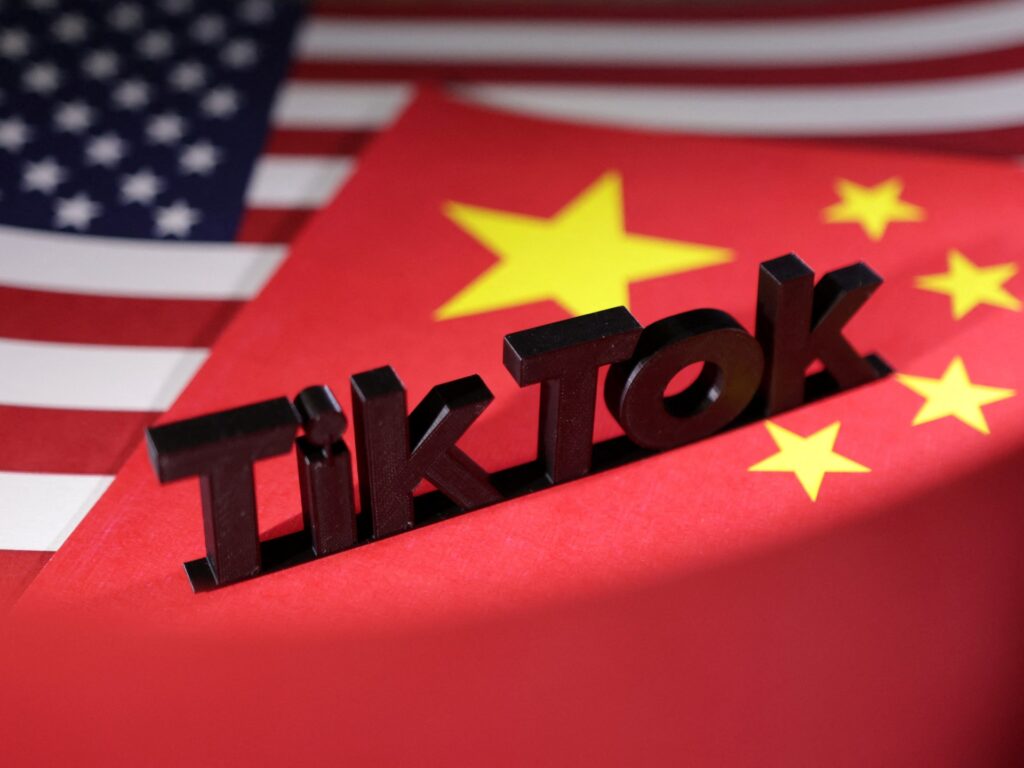Washington, DC – The United States Supreme Court has agreed to hear TikTok’s bid to block a law that would ban or compel the sale of the video platform over its links to China.
The top justices signalled on Wednesday that they are willing to reconsider a decision by a lower court that upheld the law, but they stopped short of issuing an injunction to immediately suspend the US government’s effort to block TikTok.
The Supreme Court will hear oral argument in the case on January 10, nine days before the government’s deadline to impose the ban.
US President Joe Biden approved the law, dubbed the Foreign Adversary Controlled Applications Act, in April after years of proclaimed concerns that the popular social media app may be used to steal Americans’ data and manipulate public opinion.
At the core of the case is determining whether banning TikTok is a violation of free speech rights granted by the First Amendment of the US Constitution. The government argues that the ban falls under legitimate regulations of foreign-owned companies.
TikTok is owned by the China-based technology firm ByteDance.
“The parties are directed to brief and argue the following question: Whether the Protecting Americans from Foreign Adversary Controlled Applications Act, as applied to petitioners, violates the First Amendment,” the Supreme Court said on Wednesday.
TikTok, which says it has 170 million monthly US users, called the law in a filing to the Supreme Court a “massive and unprecedented speech restriction”, invoking the inauguration of President-elect Donald Trump on January 20.
“The act will shutter one of America’s most popular speech platforms the day before a presidential inauguration,” TikTok’s lawyers wrote.
“This, in turn, will silence the speech of applicants and the many Americans who use the platform to communicate about politics, commerce, arts, and other matters of public concern.”
Trump’s ‘warm spot’
Trump previously said he has a “warm spot” for TikTok, and he met its CEO Shou Chew on Monday.
TikTok noted in its petition to the Supreme Court that the US government has only raised the potential of data breaches and content manipulation without proving that these concerns have materialised.
The platform’s lawyers said the ban is motivated by “the content posted by TikTok’s users and alleged editorial choices by TikTok Inc. in disseminating that content”.
Some US politicians have accused TikTok of boosting pro-Palestine content and spreading anti-Semitism – allegations that the platform has categorically denied.
A panel of judges on an appeals court earlier sided with the government’s argument that the effort against the platform is not about curbing free speech.
“The First Amendment exists to protect free speech in the United States,” the judges wrote.
“Here the government acted solely to protect that freedom from a foreign adversary nation and to limit that adversary’s ability to gather data on people in the United States.”
US Attorney General Merrick Garland welcomed that ruling.
“Today’s decision is an important step in blocking the Chinese government from weaponising TikTok to collect sensitive information about millions of Americans, to covertly manipulate the content delivered to American audiences, and to undermine our national security,” he said in a statement.
The Supreme Court is the highest level of appeal in the US judicial system. When it takes up a case, it signals that it is of significant national importance and that it merits to be heard at the top of the judiciary.
So, while the Supreme Court’s order does not mean TikTok will defeat the ban, the decision keeps the challenge alive. If the justices had dismissed the case, the litigation would have ended with the lower court’s ruling.
Republican Senate Minority Leader Mitch McConnell filed a brief in support of the law on Wednesday, portraying the lawsuit as a delay tactic by TikTok to buy time until Trump becomes president.
“This is a standard litigation play at the end of one administration, with a petitioner hoping that the next administration will provide a stay of execution,” he wrote.
“This Court should no more countenance it coming from foreign adversaries than it does from hardened criminals.”
The legal fight over TikTok comes amid intensifying competition between the US and China.
The US federal government and several states and companies have already banned the application from their official devices.
Earlier this week, the American Civil Liberties Union, the Electronic Frontier Foundation, and the Knight First Amendment Institute at Columbia University filed a motion backing TikTok’s case.
They called the ban “an egregious form of content discrimination”, citing US politicians’ publicly voiced warnings about political content on the platform.
“At least 20 other legislators justified their support for the act’s provisions in content- and viewpoint-based terms, citing risks ranging from the proliferation of Chinese propaganda, to the sharing of content harmful to minors, to the alleged suppression of pro-Ukraine and pro-Israel views,” the groups wrote.
